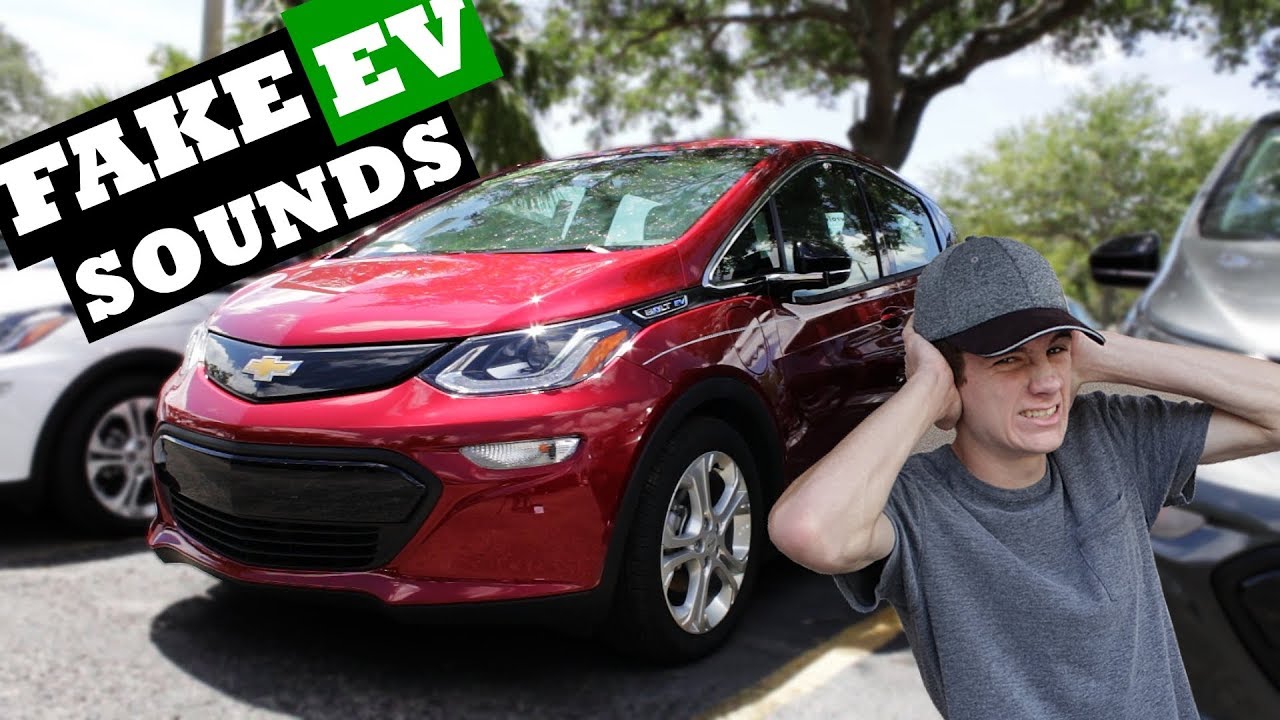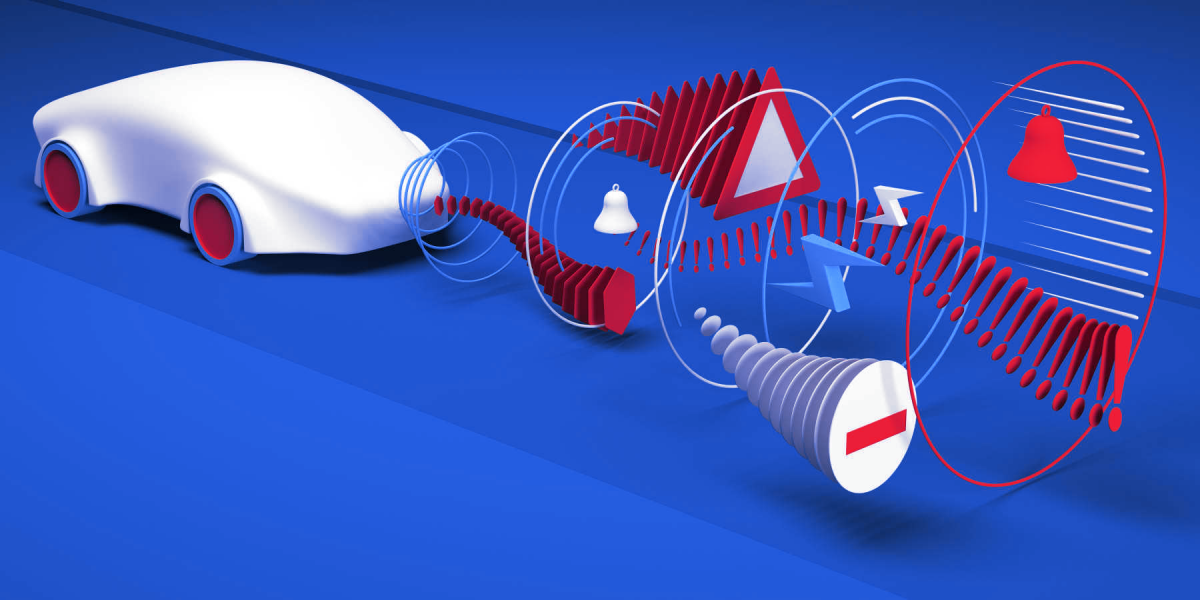Electric cars are powered by electricity from batteries, and they are becoming increasingly popular as people look for more environmentally-friendly ways to travel. One question that people often have about electric cars is whether or not they make noise. The answer to this question is that electric cars do make noise, but it is a very different kind of noise than the noise made by gasoline-powered cars. Electric cars produce a whirring sound that is caused by the electric motor that powers the car. This sound is relatively quiet and is unlikely to bother most people. Overall, electric cars are much quieter than gasoline-powered cars, and this is one of the many benefits of driving an electric car. If you are looking for a car that will not produce a lot of noise, an electric car is a great option.
Electric vehicles are known for their low noise level. Electric motors, unlike traditional combustion engines, do not require mechanical valves, gears, or fans. As a result, noise pollution can be reduced in cities, which are heavily reliant on road traffic. Despite the fact that quieter cars are preferable to more powerful vehicles, they can be hazardous to children or the visually impaired. Acoustic and thermal insulation materials for electric vehicles are expected to grow by 21% per year over the next decade. Internal combustion engine vehicles benefit from sound absorbers in addition to sound-deadening materials. A vehicle’s battery range is reduced as it becomes heavier.
The future of electric vehicles rests on the balance of weight and noise. Electric cars are naturally quieter than gasoline-powered vehicles due to the lack of internal combustion engines in their engines. However, as EV technology improves, the device’s sound will be (artificially) louder. Several critics have labeled quiet EV silent killers, and the European Union has ruled that all EV engines must make noise to make them audible to pedestrians.
Electric vehicles are extremely silent, and humming has always been a part of their mode of operation. The coolant pump’s humming sound can be heard on a regular basis. In general, humming isn’t a problem. A car’s “fake engine” noise is usually drowned out by the humming, but it would be more difficult to hear if it was coming from above.
Electric vehicles do not have completely silent engines, but getting used to the lack of engine noise can be difficult. When driving slowly in a parking lot, an EV produces some noise primarily from the tires, but it is critical for EV drivers to pay attention to pedestrians.
If you’ve ever driven an electric car or a plug-in hybrid car, you may have experienced an unusual sound while driving at a slow speed. The sound varies depending on the model of vehicle, but most of the time, it is a sort-of white noise that a speaker emits to notify pedestrians.
An electric car is virtually silent when it is not moving. Furthermore, it is so quiet at low speeds that manufacturers such as Hyundai play a warning sound to alert pedestrians (the people who are distracted by their phones).
Are Electric Car Noises Fake?

There is some controversy over whether or not the noises electric cars make are fake. Some people believe that the manufacturers add these sounds to make the cars more appealing, while others argue that the noises are necessary for safety purposes. It is difficult to say for sure whether or not the noises are fake, but it is an interesting topic to consider.
Electric vehicle owners could select from a list of fake sounds emitted by their vehicles as part of a new proposal. NHTSA is soliciting public comment on whether there should be a limit on the number of fake sounds. Electric vehicles are quieter than other types of vehicles with internal combustion engines. Wind resistance and tire noises are usually the only noises EV users make. It is required for vehicles to make an audible noise when traveling forward or reverse at speeds of 19 miles per hour or less. The National Highway Traffic Safety Administration did not specify which types of noises were installed in each vehicle. The absence of noise in electric vehicles is already yielding results for some automakers.
How Electric Cars Are Creating Noise Pollution
It is true that electric vehicles are better for the environment, but it is not always possible to cut down on the hum of the electric motors. In electric cars, an engine-like sound is produced by creating a fake exhaust. However, it is not enough to resolve this issue completely. The speed at which sound is generated by electric vehicles differs from that produced by gasoline vehicles. Both gasoline and electric vehicles emit noise from their tires and wind resistance when traveling at speeds greater than 18.6 mph. Electric vehicles, on the other hand, have a silent mode that can be reduced to zero below that speed, necessitating the requirement that they emit sounds of various frequencies while traveling at that speed.
Why Do Electric Cars Make Weird Noises?

One potential reason why electric cars might make weird noises is that they typically have a very different engine design than traditional gasoline cars. In an electric car, there is no need for a transmission, clutch, or gearbox, so the engine can be designed to run much more smoothly and quietly. Additionally, electric cars often have regenerative braking, which can cause a high-pitched whining noise when the car is slowing down.
Since its inception, car companies have always incorporated sound into their vehicles to enhance their personality and help drivers perceive their performance. Electric vehicles, which use a battery to power their engines rather than a combustion engine, have very little noise at slow speeds. When there is a lot of quiet, cyclists and pedestrians are more likely to be startled by a car that is sneaking up behind them. Harman has compiled a list of 40 terms to describe both the driver and the pedestrian experience. BMW tapped Hans Zimmer to compose sounds for its Vision M Next concept car, which sounds like a speeding or buzzing Porsche crack or a throbbing or gnashing of teeth. Electric vehicles will be required to emit artificial noises at or below 18.86 mph, but this is subject to change depending on the setting, according to a recent study. A city center in the middle of the evening may need a louder car to deal with ambient noise, whereas a residential street may be flooded with an unreasonable volume at night.
At the heart of it all is a delicate balance of sound. It is critical that businesses that provide unique acoustic feedback avoid alienating long-time fans. According to GM’s Doug Moore, European consumers may find it difficult to understand a sound similar to that in the United States. As a tribute to its muscle car namesake, Ford Motor Co.’s new battery-powered Mustang SUV.
If it turns out that the Model S will no longer make a lot of noise when parked, many owners will be concerned. According to the company, Model S HV opens the battery contactors when parked to help save energy, which is why there is no noise. The car may not make any exhaust noise because of this, potentially endangering dogs, people, or young children. To deal with this, manufacturers of electric and hybrid vehicles typically include the back-up beeper as a standard feature, so that people can hear the vehicle backing up during the low-level noise level. In response to this change, Tesla has made similar decisions to reduce the risk of accidents, as has other automakers. As an example, a silent running mode shuts off the engine when the vehicle is parked. In addition to silent running, the Mitsubishi Outlander PHEV has a dual-clutch transmission. The decision by Tesla to sell its Model S electric car is most likely the result of the growing popularity of electric and hybrid vehicles, which are becoming more popular, and the increasing number of people looking for ways to reduce their impact on the environment.
The New Normal: Electric Cars And Their Strange, Wonderful Noises
Electric cars make strange noises because they have different sounds than gasoline cars when they are speeding. According to the new U.S. regulations, these cars must make different sounds at different speeds in order to distinguish themselves from one another.
When driving slowly, electric vehicles do not make as much noise as gasoline vehicles, but they still make a discernible whining noise. This noise is produced by the motor and reducer, which are two primary sources of vibration and noise in the electric powertrain system. Structural vibrations and whining noises caused by electromagnetic forces on the reducer and the motor can appear to be visible order characteristics due to the reducer’s gear-meshing forces.
Electric Car Noise

Electric cars are much quieter than gasoline cars. Gasoline cars produce a lot of noise from the engine, while electric cars produce very little noise. Electric cars also have a lower top speed than gasoline cars, so they are less likely to produce loud noise when they are driven fast.
In 1981, the U.S. Environmental Protection Agency estimated that nearly 100 million Americans were exposed to traffic noise every year. The design of a car, as well as its speed, all influence how loud it is on the road. Chronic noise exposure can affect sleep and hearing and lead to health problems such as heart disease. Noise has an impact on the health and well-being of everyone on the planet. When cars travel across roads that have cracks, depressions, and holes, sound levels rise. These neighborhoods have poorer streets and highways than higher-income ones. In addition to adding more bike lanes and paths, more bike lanes and paths may help reduce traffic noise.
Do Electric Cars Have Fake Sound?
Electric vehicles are naturally quieter than gasoline-powered vehicles due to the lack of internal combustion engines. When the cylinder pressure changes, the engine produces a combustion noise in traditional cars. Electric vehicles’ tires and wind resistance make the vehicle’s only noise while driving.
Electric Cars And Noise: What You Need To Know
Why are electric cars so noisy? If your battery electric vehicle (BEV) is charging, it is possible that you will hear a noise. The cooling fan is to blame for this noise. When the battery and onboard charging components are cooled, the temperature of the battery and charging components can be maintained at optimal levels, resulting in maximum charge rates. Which car is loudest? The loudest cars contain large engines. The Jaguar F-Pace SVR 19MY is ranked first, with an estimated noise level of 86 dB. It also comes with a supercharged 5.0 V8 engine. Jaguar’s sport utility vehicle is featured here… This page has been made possible by the use of the internet. More rows [br]br>PluginsBlock | ActiveQuantcast International LimitedQuantcast International LimitedView Policy8 more rows [br]br> pluginsBlock | ActiveQuantcast International Limited On April 7, 2022, there will be a new date.
Why Do Electric Cars Make Noise In Reverse
Electric cars make noise in reverse because the electric motor is used to power the car in reverse. The motor is connected to the wheels and the wheels make noise as they rotate. The electric motor makes a high-pitched noise when it is running.
Why doesn’t electric cars make noise? On July 1, 2019, an EU law went into effect that required electric cars to make a continuous sound of at least 12.4 MPH. It is common for car manufacturers to adjust the volume of the vehicle in response to its speed.
The Pros And Cons Of Electric Cars
Electric vehicles are becoming more popular, but many people are unaware that they have one major disadvantage: they can be noisy. Electric vehicles are required to make chime sounds when backing up, and hybrid and electric vehicles must also make audible noises when traveling in reverse or forward at speeds ranging from 19 to 22 miles per hour. Electric motors, on the other hand, have very little noise when compared to gasoline and diesel engines, so the rule is to provide extra caution to pedestrians.
Electric vehicles can also make a whirring noise when they brake. When the battery temperature rises, the brake pads on the disc become very tightly pressed against each other, resulting in low noise from the battery management system. Charging your EV with DC fast charging would provide you with the opportunity to hear this sound from within. Electric cars have pros and cons, but they are unquestionably gaining popularity and are well worth considering if you want to buy one.
Electric Car Fake Engine Noise
It is a concept vehicle that creates sounds similar to an engine by using a fake exhaust to mimic the feeling of driving a muscle car. Electric vehicles are clearly better for the environment, but some of the faint hum produced by the electric motors simply does not cut it.
South Koreans are attempting to bring you this unique experience that is nothing like what you see today. As the engine runs, you’ll hear not only acceleration but also torque, as the driver and passengers are sensitive to these characteristics. Both companies believe that a high-performance vehicle should provide its owner with a trembling and trembling effect that is more than just a soft touch. In the future, the Korean government will use a system that analyzes how the car operates in order to generate the artificial sensation of an internal combustion engine. A separate driving small motor, which is connected to the wheels and has a preset installed that can be customized according to the owner’s needs, will be used to achieve this. It will not function on its own, so you have the option of disabling or activating it if you want. It would be enjoyable if customers would be able to recall from time to time how the internal combustion engine felt. However, even though it feels like a stretch, I believe it will work.
The Benefits Of Active Sound Design
The goal of a car is to make a noise that sounds like an internal combustion engine, both inside and outside the vehicle. Many buyers, particularly those who drive performance models, prefer loud, growling engines. They want cars with powerful engines like those found in the V8 muscle cars of old. This is where Active Sound Design comes into play. It aids in the creation of an artificial noise that is deep and believable, and quite loud if you crank it all the way up through the phone app; a car with this technology can emit as much as 98 decibels.
An automobile manufacturer has been interested in the development of artificial noise. A majority of automobile manufacturers now employ sound engineers to create a signature buzz. The primary reason for this is simple: buyers want their vehicles to make noise, and automakers are happy to accommodate this requirement. This trend will almost certainly continue, as it is a win-win situation.
How To Make Electric Cars Sound Good
Electric cars are often criticized for sounding boring and uninspiring. But there are ways to make them sound good. One way is to make sure the engine is running smoothly and at the right speed. Another way is to use a good exhaust system. Finally, you can use a sound system to make the car sound better.
Electric vehicles’ volume must be increased in order for them to be accepted by motor regulators. The road safety regulator has issued a new ruling that requires all EV models to have warning sounds beginning September 1. With a library of sounds akin to iTunes, some of the automotive world’s most renowned drivers have congregated. From fake farts to goat baas, the tweet promised to be extremely bizarre. Porsche will sell an electric sport sound in their Taycan that sounds like petrol engine noises for $500 (£400).
Electric Car Humming Noise
If the source of the humming or buzzing noise is a contactor, it must have been caused by one. The most common cause of this is a small amount of debris or dust on the contactor mechanism, causing the movable portion to vibrate and not seat perfectly. unsealed contactor products are not uncommon.
To make it audible, the AC power is usually twice as loud as the hum. The electric current hums 120 hertz, or between a B and a B-flat (opens in new tab) two octaves below middle C in the United States, or one octave lower in Europe. In electronics, there’s a similar situation, from fluorescent lighting to toaster ovens. Inhaled power lines hum due to a phenomenon known as corona discharge, which can be hazardous. This problem is avoided by modern power lines, at least in dry conditions. It is possible for that to occur, depending on the weather. Hamer, a Live Science contributor, has written about everything from quantum physics to health and psychology. Her other podcasts include Curiosity Daily and Taboo Science. Hamer earned his bachelor’s and master’s degrees in jazz saxophone at the University of North Texas.
Why Does My Electric Car Make A Humming Noise?
Some people are perplexed as to why an electric car makes a humming sound for some reason. An electric car’s humming sound is actually a discharge of energy. When the electric field around the power lines is more than what is required to generate current from the power line to the atmosphere, it creates an electric field around the power lines.
Even though this noise is annoying, it is not harmful and will not affect the performance of your vehicle. This device, in fact, makes it easier to keep the battery and charging components at the right temperature for maximum charging efficiency. If you notice your electric car making a humming noise whenever you drive, you do not need to be concerned because it is doing its job.